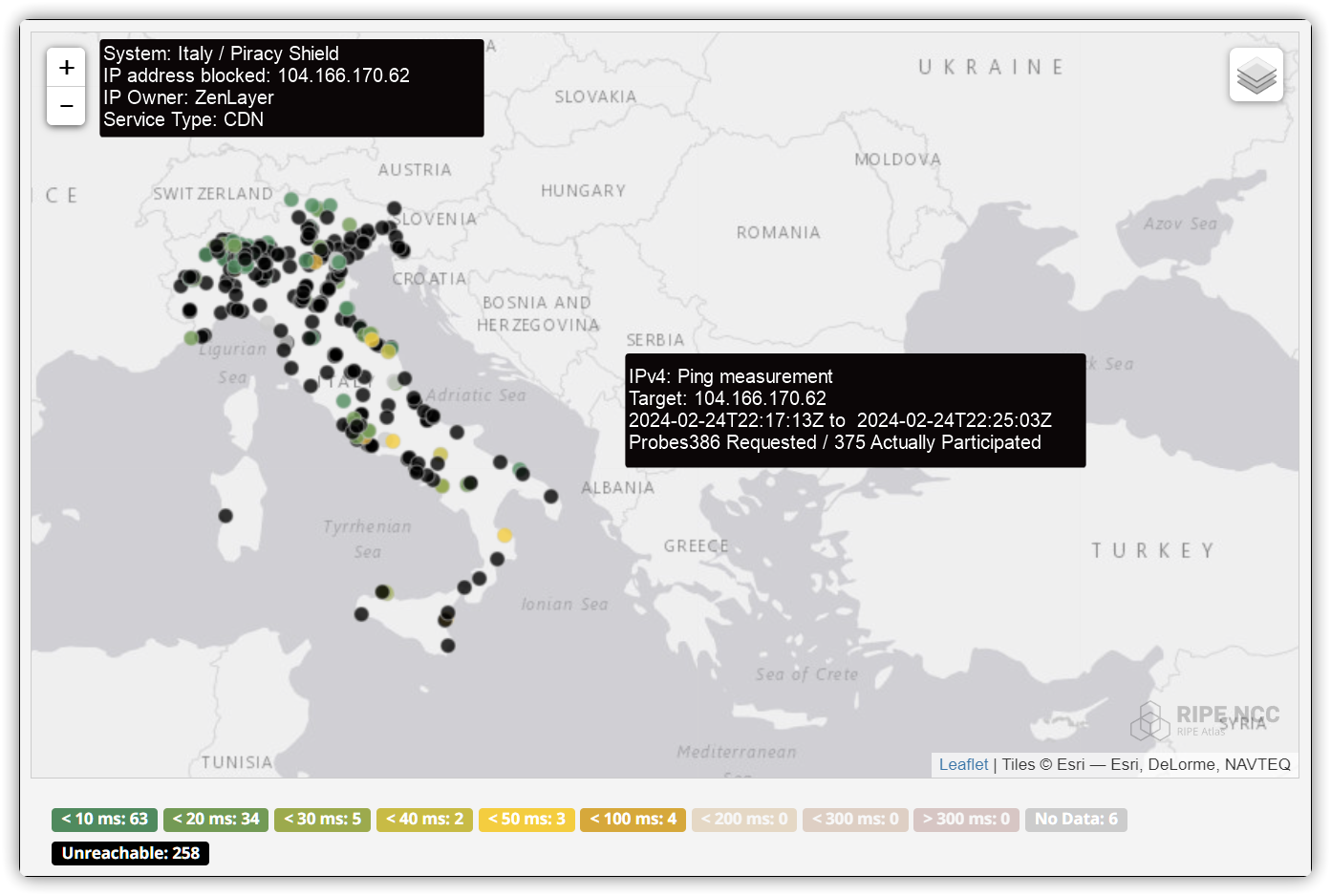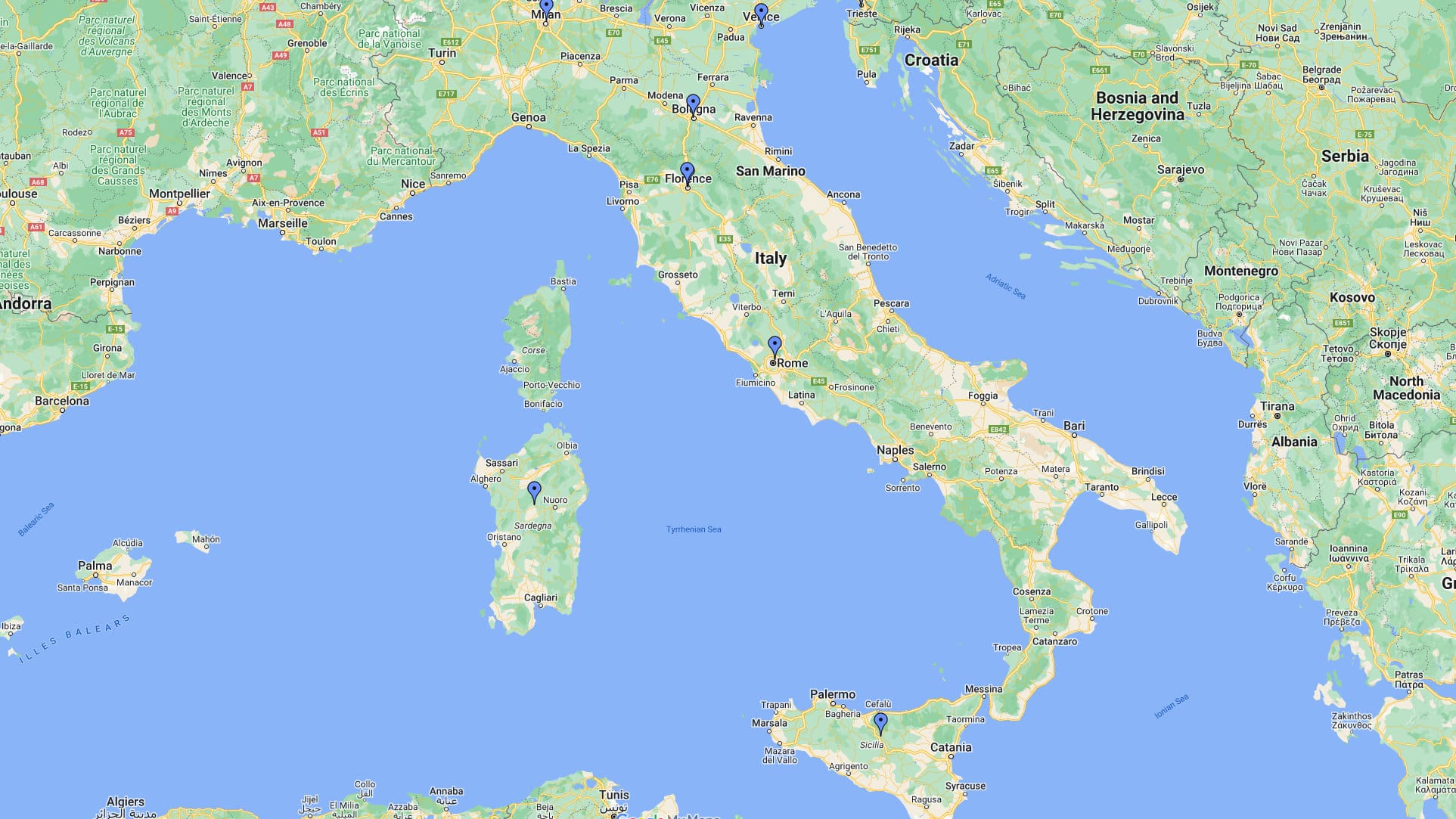As a web developer in the United States, I’m bringing this matter to your attention not because it really has a material affect on Inacom’s clients, but because the issue of online government censorship is something that affects us all. Even though I received a notification from Cloudflare stating that client sites were affected, it’s not like this downtime affected the order volume at the butcher near me.

Italy’s Piracy Shield program is supposed to deal with the issue of copyright violations, particularly around IPTV services broadcasting soccer matches online. It’s poor implementation and burdensome compliance requirements have been making waves in the tech and legal spheres. It also affects content delivery networks (CDNs) like Cloudflare, that we rely on as a part of our Managed Wordpress service. As one of the leading CDNs in the world, Cloudflare has found itself at the center of the storm as its IPs have been blocked by Italy’s site-blocking program. This has raised concerns about the impact on internet freedom and the ability of users to access certain websites.
In this blog, we will delve into Italy’s Piracy Shield program and its implications for Cloudflare, as well as explore the legal landscape and the appeal process against blocks. Furthermore, we will examine the broader implications of this program on internet freedom and discuss the role CDNs play in this contentious issue.
Understanding Italy’s Piracy Shield Program and Its Impact on Cloudflare
Italy’s Piracy Shield program, implemented by the country’s national telecoms regulator AGCOM, is causing issues for websites that use Cloudflare. The program aims to block websites that infringe copyright, but it is unintentionally blocking innocent websites as well. This raises concerns about the impact on freedom of expression and the open nature of the internet.
One of the challenges with policing the internet is that it is difficult to effectively filter content and enforce restrictions. The Piracy Shield program has crashed under the weight of requests to block IP addresses, indicating potential scalability issues. And blocking CDN addresses, such as Cloudflare, can have unintended consequences and affect thousands or even millions of websites.
The blocking of innocent websites by the Piracy Shield program highlights the need for a balanced approach to address online piracy and copyright infringement. It is important to protect the rights of content creators while also ensuring the rights of internet users and freedom of expression.
The Ramifications of Cloudflare IPs Being Blocked by Italy’s Piracy Shield
The repercussions of Cloudflare IPs being blocked by Italy’s Piracy Shield are far-reaching and raise significant concerns about the effectiveness and legality of the system. One of the major issues with the Piracy Shield is its blocking of innocent websites, including a charity, a telecoms company, and several schools. This erroneous blocking not only disrupts the operations of these organizations but also raises questions about the lack of transparency and accountability within the system.

The lack of information and transparency surrounding the blocks is a significant problem for those affected. Appeals against Piracy Shield’s blocks can only be made within five working days of their publication. However, the system’s failure to publish information about erroneous blocks makes it nearly impossible for those affected to appeal within the given time frame. This raises concerns about the fairness and due process of the system.
In response to the flawed implementation of the Piracy Shield, some ISPs have taken matters into their own hands and decided to unblock IP addresses without permission. While this may seem like a solution to the problem, it contravenes the rules set by the Piracy Shield system, further highlighting its ineffectiveness and lack of control.
The incompetence and ineffectiveness of the Piracy Shield system bring to mind the failed attempt to stop unauthorized sharing in France through the Hadopi system. Similar to the Piracy Shield, the Hadopi system was plagued with issues and ultimately failed to achieve its objectives. The similarities between these two systems suggest that Italy’s Piracy Shield may turn out to be another copyright fiasco.
Experts had warned about the potential problems that could arise from a site-blocking program without proper checks and balances in Italy. The current situation with the Piracy Shield confirms these concerns and highlights the need for more robust and transparent anti-piracy measures.
Overall, the blocking of innocent websites and the system’s inability to follow the law correctly render the Piracy Shield system ineffective and pointless. It not only hinders the operations of legitimate organizations but also undermines the principles of fairness and due process. As this situation unfolds, it is crucial for internet users in Italy, digital rights activists, legal professionals, website owners, and tech enthusiasts to closely monitor the developments surrounding the Piracy Shield and advocate for a more effective and transparent approach to combating piracy.
Navigating the Legal Landscape: Appeal Process Against Blocks by Italy’s Piracy Shield
The Piracy Shield system in Italy has faced significant criticism and concerns regarding its blocking of innocent sites and CDNs. One of the first issues that caused elevated public concern was the blocking of Zenlayer CDN IP addresses. This raised questions about the effectiveness of the system and its ability to accurately target infringing content without causing collateral damage.
Despite reports to the contrary, AGCOM and anti-piracy group FAPAV claimed that the Piracy Shield system was working perfectly. However, these statements were quickly contradicted when an IP address within Cloudflare’s AS13335, which accounts for over 42 million domains, was targeted for blocking. This IP address was not the sole user of the service that rights holders wanted to block, and blocking it risked affecting numerous other websites using the same IP address.
The decision to proceed with blocking this IP address raises questions about the checks and balances in place within the Piracy Shield system. Giorgio Bonfiglio, a Principal Technical Account Manager at Amazon Web Services, had previously warned about the risks of blocking shared IPs. His advice, which highlighted the difficulty of determining whether an IP address is shared or not, was ignored in this case.
The consequences of this decision quickly became apparent. Reports of websites going offline came in rapidly, and by 4:31pm, Italy was covered in black spots indicating no connectivity. This incident sparked what can only be described as a block party, with numerous sites experiencing disruptions and loss of service.
The impact on schools is particularly concerning, as the laws and regulations passed last year include a mandatory educational component for children. The blocking of websites, even if unintentional, can hinder educational activities and hinder the learning process. It is crucial to find a way to explain to children why preventing piracy might have unintended negative consequences for education.
These incidents raise concerns about EU citizens’ right to receive and impart information without interference, a right that is often discussed in the context of site-blocking measures. However, in Italy’s site-blocking discussions, such concerns were disregarded. The focus on combating piracy seems to have taken precedence over protecting internet freedom and ensuring that innocent sites are not unjustly blocked.
Given the issues and consequences associated with the Piracy Shield system, it is crucial for internet users in Italy to understand the appeal process available against blocks imposed by the Piracy Shield.
The Role of CDNs in the Crosshairs: Cloudflare’s Involvement in Italy’s Site-Blocking Program
Interestingly, approximately five hours after the blockade was put in place, reports suggest that the order compelling ISPs to block Cloudflare mysteriously disappeared from the Piracy Shield system. While details are scarce, some believe that the deletion may violate the rules or even the law itself.
In response to the incident, Ernesto Castellotti, an IT enthusiast whose website was unlawfully blocked, has taken action by sending a civil access request to AGCOM, the Italian communications regulator. He is demanding all information held on file to understand why his website was blocked and is also calling for the immediate resignation of the head of AGCOM due to negligence in implementing the Piracy Shield project.
As of now, AGCOM has not provided any formal comment on the incident, leaving many concerned about the potential consequences of the Piracy Shield program. Moreover, the problems caused by the program have started to affect VPNs, as some are now turning away Italian users due to the blocking orders imposed by the Piracy Shield system. This development raises further questions about internet freedom in Italy and the disproportionate power given to the copyright industry to control online content without the need for court orders.
It is clear that the role of CDNs, such as Cloudflare, is coming under scrutiny in the context of Italy’s site-blocking program. The incidents described here highlight the potential dangers and unintended consequences of such programs, calling for a careful balance between preventing piracy and protecting internet freedom.
Safeguarding Internet Freedom: Assessing the Implications of Italy’s Piracy Shield
The implementation of Italy’s Piracy Shield, a new Internet blocking system, has raised significant concerns about internet freedom and the protection of fundamental human rights. As discussed in the previous section, the Piracy Shield assumes individuals are guilty until proven innocent and grants the copyright industry disproportionate power to control online content without the need for court orders.
Since its launch in December, the Piracy Shield has issued its first blocking orders, mandating not only ISPs but also VPNs and open DNS services to comply with the blocking orders. Notably, Google has agreed to dynamically deindex sites and remove infringing advertisements as part of its adherence to the Piracy Shield.
However, a troubling development has emerged regarding the Piracy Shield’s requirements. A document detailing the technical requirements of the system confirms that all VPN and open DNS services must comply with blocking orders, including through accreditation to the Piracy Shield platform. As a result, the popular VPN service AirVPN has recently announced that it will no longer accept users residing in Italy.
AirVPN’s decision to discontinue its services in Italy highlights the burdensome requirements and negative impact on service performance imposed by the Piracy Shield. The system allows private bodies authorized by AGCOM, such as Sky and DAZN, to compile blocking lists without judicial or AGCOM review. These private entities are not subject to specific fines or statutory damages for errors or over-blocking.
The lack of oversight and accountability in the Piracy Shield’s block list compilation process raises concerns about potential over-blocking and unjustified restrictions on access to online content. The fact that Italian residents are losing access to a popular VPN service due to this new law is a stark reminder of how copyright protection is prioritized over fundamental human rights like privacy and security.
In a world where privacy threats from companies and governments are constantly increasing, VPNs play a vital role in safeguarding internet users’ privacy. Having a range of VPN services to choose from is crucial for ensuring individuals can protect their online activities effectively.
The restrictions imposed by the Piracy Shield not only undermine internet freedom but also raise questions about the Italian authorities’ commitment to protecting fundamental rights and privacy. By giving more importance to copyright enforcement than to individual rights, the Piracy Shield sets a concerning precedent in a world where privacy is increasingly threatened.
All in All
Italy’s Piracy Shield program has undoubtedly sparked a heated debate surrounding internet freedom and the role of CDNs like Cloudflare. The blocking of Cloudflare IPs has raised concerns about the accessibility of websites and the potential for overreach in site-blocking measures. While the appeal process provides a glimmer of hope for those affected, it remains to be seen how effective it will be in addressing the concerns raised. As we navigate the legal landscape and assess the implications of Italy’s Piracy Shield, it is crucial for internet users, digital rights activists, legal professionals, website owners, and tech enthusiasts to remain vigilant and advocate for a balanced approach that protects both intellectual property rights and internet freedom. The future of the internet may depend on our ability to find common ground and ensure that innovative technologies like CDNs can coexist with effective measures against online piracy.

